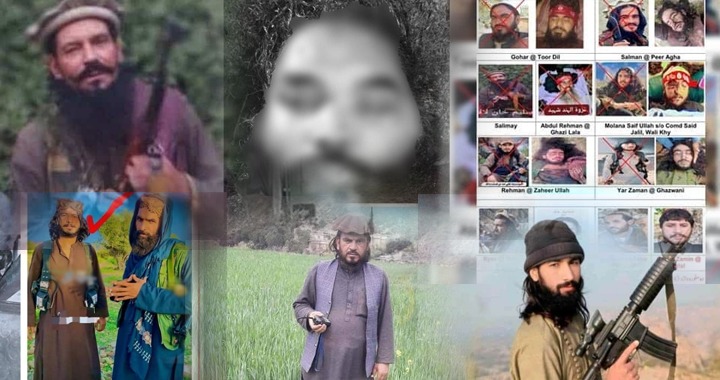Pakistan’s less-than-two-year-long campaign against terror has been marred by extraordinary courage, relentless precision, and a series of decisive strikes that have systematically dismantled the leadership of the banned Tehreek-e-Taliban Pakistan (TTP), locally designated as Fitna al-Khawarij. From the neutralisation of divisional heads Mohsin Qadir and Abdul Rahim in Mardan and Peshawar to the recent elimination of Qari Amjad alias Mazahim, the deputy and right-hand of TTP chief Mufti Noor Wali Mehsud, Pakistan’s security forces have delivered a relentless message: there will be no sanctuary for terrorists on its soil.
In February 2024, key TTP figures including Mohsin Qadir, head of the Mardan Division, and Commander Abdul Rahim were neutralized in the Mardan and Peshawar regions. Both were reportedly orchestrating large-scale attacks on security forces.
In November 2024, Molvi Taha, a senior member of the TTP’s central Shura, was also killed in a targeted operation in Malakand alongside Commander Mufti Mubarak Kochwan in April 2025.
Similarly, in October 2024, despite being in a closely guarded location, senior militant Ustad Janoori was eliminated in Khyber. More recently, Qari Ismail and Commander Faroori were killed in February 2025 during a successful strike in Taqab Gandapur, Dera Ismail Khan.
High-Value Commanders Neutralised in 2025
June 9, Lakki Marwat:
In a high-intensity encounter in Kot Kashmir, police and local peace committee members killed three Khawarij operatives, including the notorious Commander Chhota Waseem. During the two-hour standoff, civilians used as human shields were rescued, and Police Constable Shahidullah embraced martyrdom while saving them. The operation reflected the synergy between law enforcement and community engagement in counter-terrorism.
June 16, Peshawar:
An intelligence-based strike near HBK Hypermarket eliminated four hardcore TTP operatives, including the infamous Rauf Afridi, alias Ilyas Khoram. The operation disrupted a strategic Khawarij network node and reaffirmed Pakistan’s commitment to intelligence-led counter-terrorism measures.
June 27, Hassan Khel, Peshawar:
Tahir, a key Khawarij commander linked to splinter factions led by Asim and Usman, was neutralised in a brief but decisive engagement in Peshawar’s Hassan Khel area. His elimination curtailed subversive operations targeting civilians and law enforcement across the region.
July 22, Mir Ali, North Waziristan:
Security forces thwarted a planned assault on critical infrastructure, killing senior TTP commanders Zainullah alias “Lambay” and Abu Saeed. Seized material, including smartphones and cash, is under analysis for intelligence gains.
August 21, Kandahar, Afghanistan:
Senior TTP commander Naqeebullah Agha, the so-called “Khariji Commander of Balochistan,” was shot dead by unidentified assailants. His elimination underscores the TTP’s vulnerable position amid internal fissures and growing external hostilities.
August 31, Khyber District:
Intelligence operations, in Khyber, led to the elimination of Saifullah alias Badri, a senior Jamaat-ul-Ahrar commander. Security officials termed his elimination a significant blow to TTP operations in Khyber Pakhtunkhwa.
September 8–9, South Waziristan & Bannu:
Precision strikes in Manrah and Mutak Kaley injured multiple militants, while Maulana Aleem-ul-Haq alias Commander Mansoor Janikhel was killed in Janikhel, Bannu. His elimination dismantled the operational chain of the HGB Sadiqullah Gurbaz Group. Concurrently, in North Waziristan, “Operation Zarb-e-Haider” neutralised at least eight militants, including high-profile commanders such as Asad, Turabi, Khalid Farooq, Chamtoo, and Maulvi Mansoor, while arresting three others.
October 6–19, Bajaur & Border Regions:
Afghan Khariji commander Pir Agha Khandari was killed in Bajaur. Operations in Mohmand eliminated senior TTP commander Wazir. Subsequent engagements in Wanda Amir, Lakki Marwat, and Mamund tehsil claimed Hikmatullah (aka Hamza/Ladaka) and Saleem Khan (aka Lala). Tur Dil (aka Gohar), a high-value target with a bounty of PKR 10 million, was neutralised in Bajaur. On October 17, precision strikes on Gul Bahadur Group hideouts in Paktika eliminated 70 terrorists, including key commanders orchestrating cross-border attacks.
October 28–29, Bajaur:
In a decisive counterterrorism operation along the Pakistan-Afghanistan border, four Khawarij were killed, including the high-value commander Qari Amjad alias Mazahim, deputy to TTP chief Mufti Noor Wali Mehsud and head of the Rehbari Shura. With a bounty of Rs 5 million, Amjad’s elimination is hailed as a culmination of Pakistan’s sustained offensive against TTP leadership.
November 1, Harnai, Balochistan:
A strike eliminated senior TTP commander Saifullah and five associates, disrupting coordination between TTP and the Balochistan Liberation Army (BLA) in supplying explosives and planning attacks.
Strategic Significance
Security officials describe the elimination of Qari Amjad as a critical blow to the TTP’s command structure. “Pakistan has consistently shown that it will neutralise terrorist leadership regardless of their location,” an ISPR statement said. Analysts note that the systematic targeting of TTP commanders inside Pakistan and along the Afghan border demonstrates both operational mastery and intelligence superiority.
Each operation, whether rescuing civilians, neutralising militants in cross-border zones, or dismantling entire networks, underscores the dual commitment of Pakistan’s security forces: protecting citizens while pursuing justice with strategic precision. The cumulative impact of these operations has not only disrupted terror networks but also sown mistrust within TTP ranks, weakening their operational capabilities.
The Road Ahead
While Qari Amjad’s elimination marks a milestone, officials emphasise that Pakistan’s counterterrorism drive continues. With persistent intelligence gathering, joint operations with local communities, and precision strikes against high-value targets, authorities aim to dismantle remaining terrorist infrastructures, ensuring that the nation remains secure from internal and cross-border threats.
Pakistan’s less-than-two-year campaign has become a narrative of valour, tactical acumen, and unflinching resolve—demonstrating that a well-coordinated security apparatus, coupled with civilian support, can decisively strike terror networks, ultimately shaping a safer future for the country.





